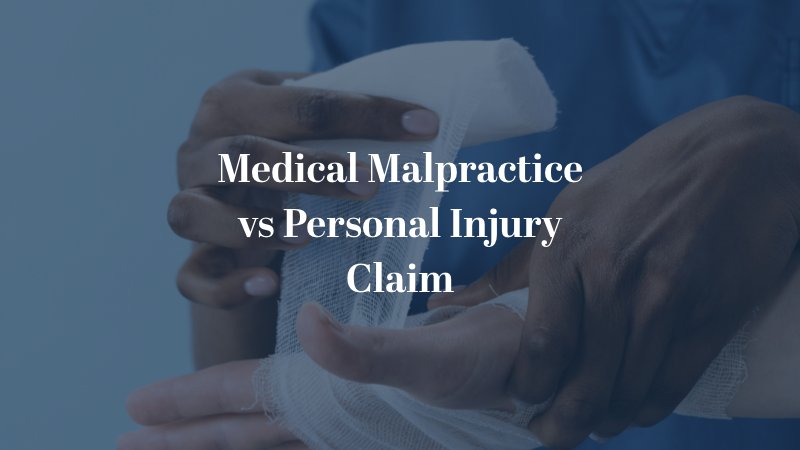Understanding the difference between medical malpractice and personal injury is essential for anyone seeking compensation after being harmed. While both types of claims deal with someone getting hurt, the situations they apply to and the way victims must pursue justice can be different.
What is a Personal Injury Claim?
A personal injury claim is a legal process that allows a person who was hurt due to someone else’s negligence or reckless actions to seek financial compensation.
These claims are designed to cover your losses when an accident or incident could have been prevented if people or companies had exercised reasonable care. Personal injury law applies in a wide variety of situations that don’t involve medical treatment mistakes. Common examples include:
Car Accidents
If another driver is distracted, speeding, or breaking traffic law and causes you to crash and get injured, you can file a personal injury claim against them.
Slip and Fall Accidents
If you slip, trip, or fall at a business or on someone’s property because of a hazard such as uncleaned spills or ice, you can pursue a claim against that property owner.
Dog Bites
If you are bitten by a dog and experience injuries and losses, you can file a personal injury claim.

What is a Medical Malpractice Claim?
A Washington DC medical malpractice claim occurs when a patient is injured or harmed because a healthcare provider failed to deliver care that meets the accepted standard of practice in the medical community. It isn’t just about being unhappy with a doctor’s care; there must be a clear link between a medical error or negligence and harm to the patient. Common examples include:
Misdiagnosis or Delayed Diagnosis
Doctors may overlook crucial symptoms or misread test results, causing a patient’s condition to go undiagnosed or be diagnosed too late, allowing the illness to worsen.
Surgical Errors
Setting aside the risks normal to any operation, things like wrong-site surgery or leaving surgical instruments inside the body are classic examples of malpractice.
Medication Errors
Doctors, pharmacists, or nurses might administer the wrong drug or dosage, causing harm.
Birth Injuries
Mistakes during prenatal care or the birthing process, like improper use of forceps or failing to recognize fetal distress, can lead to malpractice lawsuits.
Special DC Procedures for Medical Malpractice Cases
It’s important to know that pursuing a medical malpractice claim in Washington, DC is not the same as filing a general personal injury lawsuit. The law imposes two major requirements on malpractice victims that differ from other types of injury claims.
90-Day Pre-Suit Notice
Before you can file a medical malpractice lawsuit against a doctor, nurse, or hospital in DC, you must first provide a written “notice of intent to file suit” to each healthcare provider you plan to name in your case. This written pre-suit notice must be sent at least 90 days before you file your complaint in court.
- 16–2802. Notice of intention to file suit.
(a) Any person who intends to file an action in the court alleging medical malpractice against a healthcare provider shall notify the intended defendant of his or her action not less than 90 days prior to filing the action.
Personal injury claims, like those involving car accidents or slip and falls, do not have this notice requirement.
Certificate (or Affidavit) of Merit
Another unique hurdle in DC is the Certificate of Merit. Within 90 days of formally filing your medical malpractice lawsuit, you must also file a sworn statement from a qualified expert, typically another doctor in the same field, attesting that your claim has merit and is not frivolous.
This certificate must lay out that the defendant strayed from the accepted standard of medical care and that this breach genuinely caused your injuries. If the certificate isn’t filed on time or doesn’t meet requirements, the case can be dismissed before anyone even reviews the facts.
It’s easy to get confused about whether your case is a personal injury or medical malpractice claim, especially since both involve someone getting hurt. Understanding the difference helps ensure you take the right steps from the beginning and avoid mistakes that could affect your outcome.
The surest way to protect your rights and meet legal deadlines is to speak with a knowledgeable attorney. Call us today to schedule a free consultation.